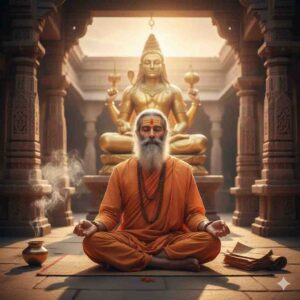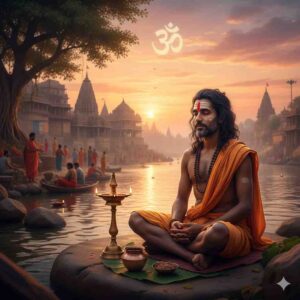Can Ancient Hindu Philosophies Coexist with Modern Liberal Values?
As India strides into the future, bridging its rich historical legacy with modern advancements, the relevance of Hindu teachings in contemporary society continually sparks debate. Amid technological innovations and evolving social norms, the integration of millennia-old wisdom with today’s progressive values poses both challenges and opportunities.
Hindu philosophy, with its intricate understanding of the cosmos and human existence, has shaped India’s cultural and ethical landscape for thousands of years. Central to Hindu thought are the concepts of Dharma (duty/ethics), Artha (prosperity/work), Kama (desires/passions), and Moksha (liberation from the cycle of life and death), which continue to guide the daily lives and decisions of millions.
A recent Pew Research Center survey highlights that 94% of Hindus in India view their religious practices as deeply intertwined with their daily choices, illustrating the profound influence these ancient teachings have at both personal and societal levels. This significant statistic not only underscores the teachings’ enduring legacy but also their adaptability to modern contexts.
The principle of ‘Vasudhaiva Kutumbakam’—viewing the world as one family—resonates strongly in today’s globalized society. This age-old Hindu ideal promotes universal peace and empathy, proving crucial in fostering international relations and humanitarian efforts. India’s application of this philosophy has been visible in its foreign aid initiatives during global crises, including the recent COVID-19 pandemic, reflecting a commitment to global welfare that transcends national boundaries.
Furthermore, Hindu teachings on the sanctity of nature and ‘Ahimsa’ (non-violence) have found new expressions in contemporary environmental movements. These principles form the ethical backbone of various green initiatives in India, highlighting the practical relevance of ancient wisdom in tackling modern challenges like climate change and biodiversity conservation.
However, the application of Hindu teachings is not without controversy, especially regarding social issues such as caste and gender equality. Recent judicial reviews and societal debates reflect a critical engagement with traditional practices, as seen in the Supreme Court’s considerations on women’s rights within religious contexts. These discussions are vital for evolving the interpretation of Hindu teachings to better align with contemporary values of equality and justice.
It is essential to distinguish the spiritual and philosophical tenets of Hinduism from the cultural practices that have developed over time. Advocates for a progressive interpretation of Hindu scriptures call for a re-examination of texts to shed regressive customs and reinforce values that promote a more inclusive and egalitarian society.
In conclusion, the continued relevance of Hindu teachings in today’s India is evident in their widespread influence on personal ethics, social policies, and national identity. As the country navigates the complexities of modernity and tradition, these ancient teachings offer a reservoir of moral guidance and ethical reflection, demonstrating that timeless wisdom can indeed coexist with contemporary ideologies to address the nuanced challenges of our times. This dynamic interplay of the old and the new may hold the key to a balanced and forward-looking societal ethos.










